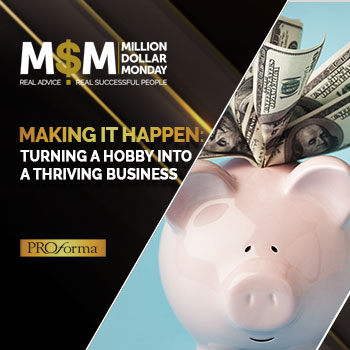“It gets into an issue of an even playing field at both the retail and wholesale and brewer level,” said Mike Lashbrook, president of the Michigan Beer and Wine Wholesalers Association (MBWWA), an influential trade group which has opposed any changes to Michigan’s liquor laws. “If you get into what essentially becomes a game of commercial bribery, as in who can give away the most and who has the deepest pockets, those particular brands would then be favored on tap or featured at given licensees.”
The MBWWA is concerned that the superior marketing power of larger businesses could influence the products sold by retailers, but Lashbrook’s observations mischaracterize promotional items as a means of bribing businesses. Not only does the MBWWA describe the use of branded merchandise as “commercial bribery,” but the state’s laws reinforce that stereotype: Regarding the limited circumstances when promotional items are allowed in restaurants, the regulations explicitly state that “under no circumstances may these items be given to the retail licensee or their employees” and must be retrieved by the vendor at the end of the campaign.
“Is our media that much more powerful than any other advertising medium?” asked Paul Kiewiet, the executive director of the Michigan Promotional Products Association (MiPPA) and a marketing industry expert with more than 30 years of experience. “Regulators are suggesting that a microbrewery supplying a few dozen imprinted beer mugs to a retailer is more powerful than SuperBowl ads, full color ads in the Sports Illustrated Swim Suit issue, or a full flight of ads on the radio broadcast of the World Series. It’s a nice compliment, but one that they have no business trying to regulate.”
Members of the promotional products community have resisted this characterization for years and have statistics showing the effectiveness of imprinted items. In a 2010 study, the Advertising Specialty Institute found that promotional products have a better-cost-per impression than prime time television and national magazines, research conducted by the Promotional Products Association International in 2009 found that 78 percent of businesses found promotional products to be “very effective” or “somewhat effective” in meeting their advertising needs.
According to Jim Wysopal, president of supplier California-based Openers Plus, who has worked with the country’s largest beverage brands for more than 20 years, “the alcohol industry is the stereotypical reason why promotional products work and why advertising in general works.”
“Promotional products are effective marketing to end-users,” Wysopal explained. “Every bar owner is looking to sell more product, to make more money. Giveaways are used to sell brand. A brand that gives bottle openers, decorated pint glasses and coasters to each bar is helping that bar sell more brand, [and] in turn make more money.”



